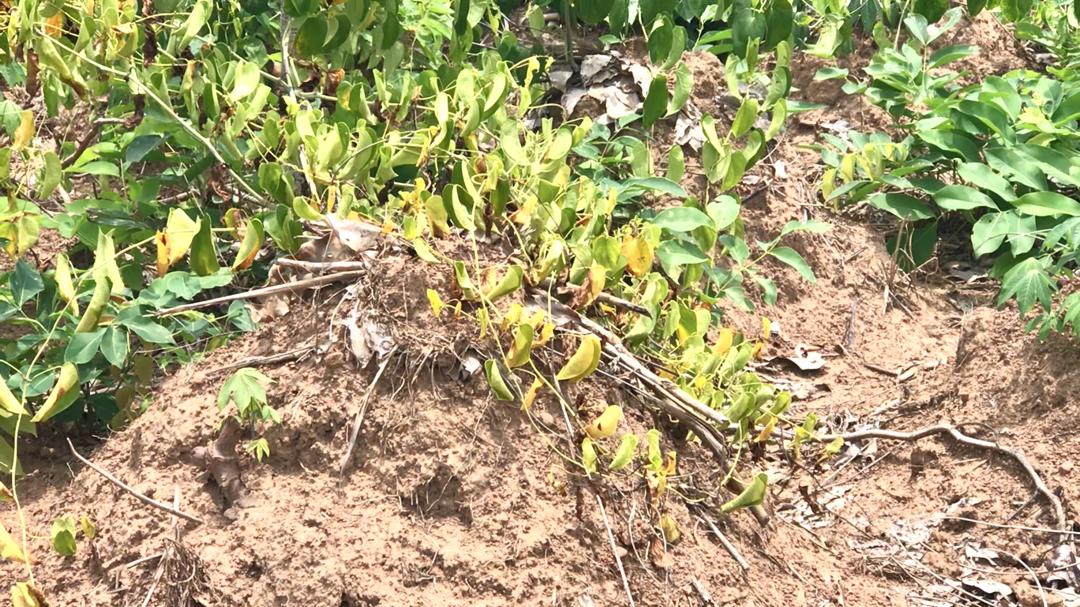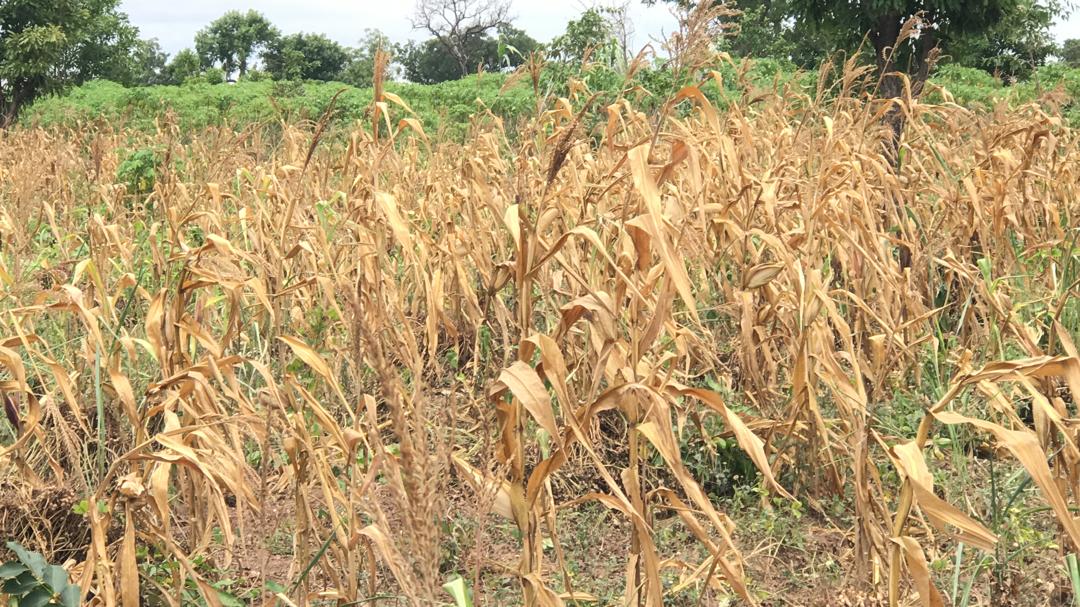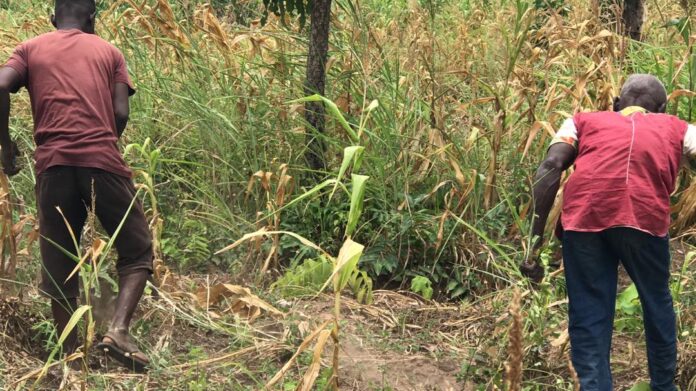Farmers in the Oti Region are struggling with the severe impact of a prolonged dry spell, which has left their fields barren and their hopes fading.
The absence of rain has not only put crop yields at risk but also threatened the livelihoods of many families who depend on agriculture for their survival.
Adom News’ Obrempongba Owusu visited several farms in the area, where the effects of the ongoing drought were starkly visible.

Farmers in the region, who largely depend on rain-fed agriculture, primarily grow staple crops such as maize, rice, groundnuts, millet, beans, cassava, and yams.
The drought has not only diminished their income but also endangered food security. The withering crops and reduced harvests have forced many farmers to abandon their fields entirely.
Nkwanta Senior High School has also suffered, losing five acres of maize due to the persistent dry conditions.
The maize, a staple food and critical resource for the school, has shriveled under the relentless sun, leading to substantial financial losses for the institution.
The school’s agricultural department, led by Lawrence Antwi, aimed to provide students with practical farming experience. However, the lack of crops now threatens the department’s educational goals.
Local farmers expressed their frustration and despair, watching their livelihoods disappear as the lack of rain from July to August has left their fields barren, casting uncertainty on their future.
As the situation worsens, farmers are urgently calling for government and agricultural organizations to intervene.

Chief Agriculture Technical Officer in Nkwanta South, Stephen Darko, has voiced serious concerns about the ongoing dry spell’s impact on agricultural productivity.
He warned that if the current weather conditions persist, the government might struggle to meet its targets for the Planting for Food and Jobs (PFJ II) initiative.
Mr. Darko stressed the immediate need for government intervention to mitigate the drought’s effects on farmers and food production.
Source: Obrempongba K. Owusu


